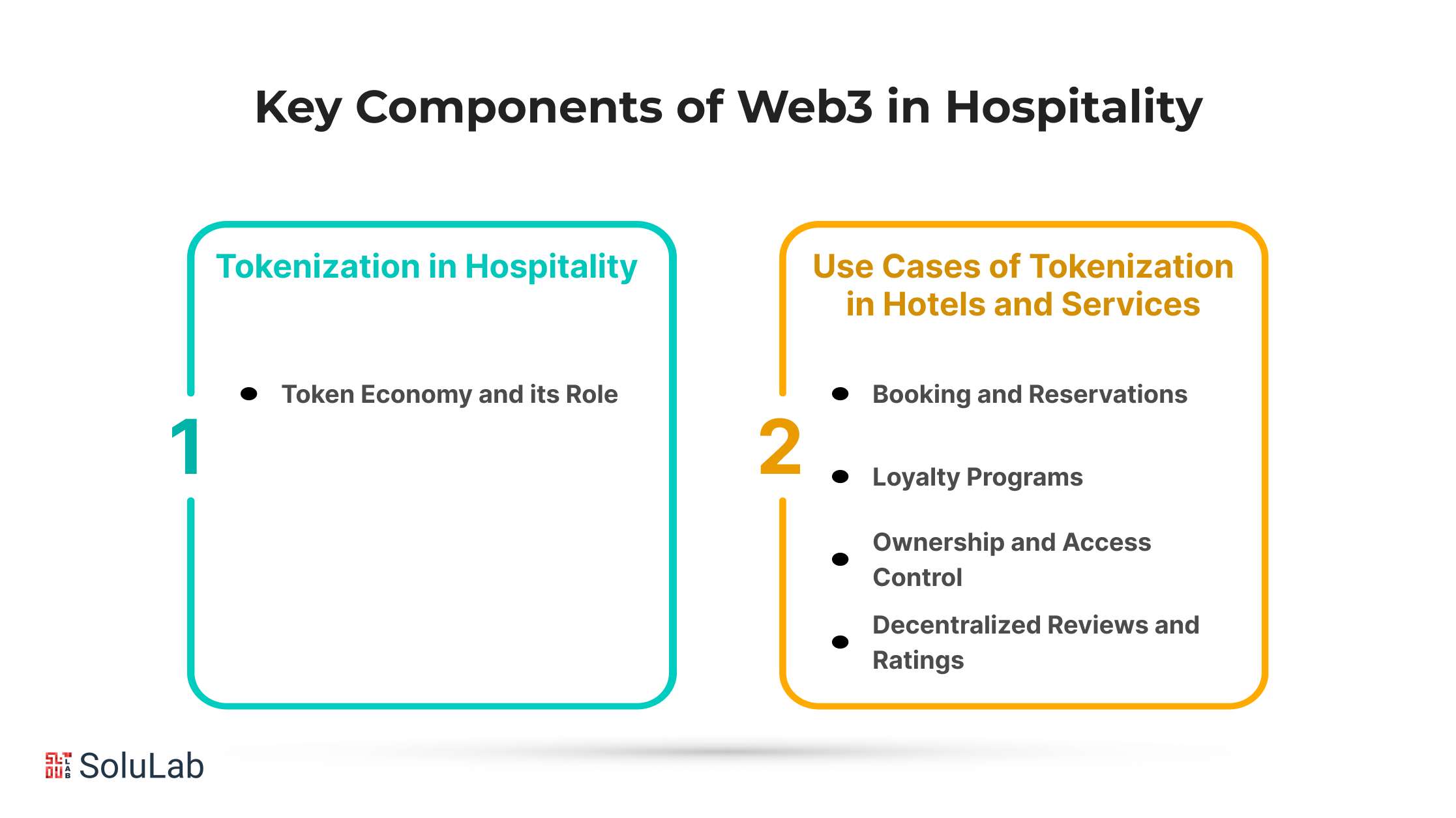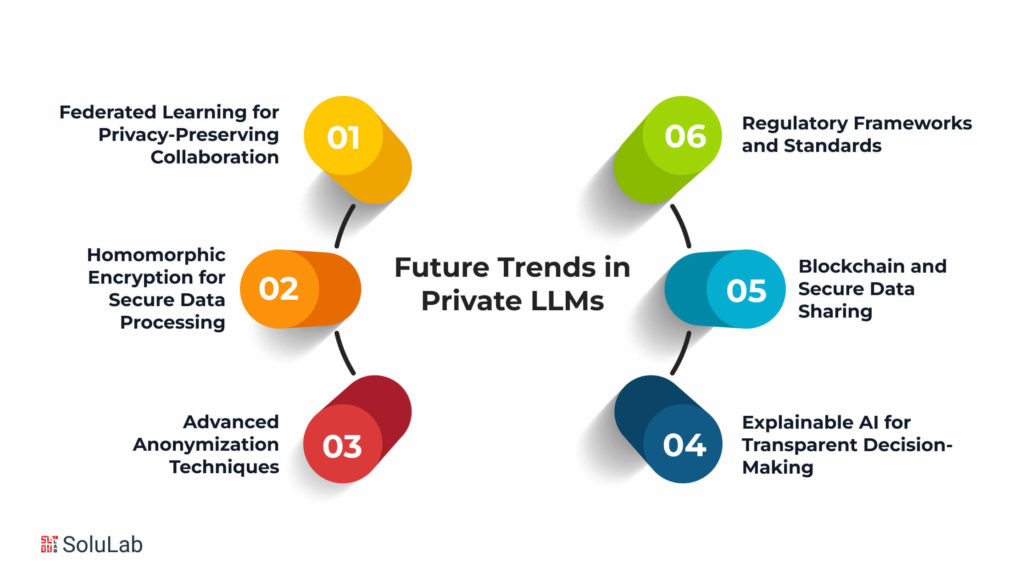
The introduction of Web3 represents a fundamental shift in how companies work, and the hotel industry is no different. Web3, a decentralized and user-centric internet paradigm, ushers in a new era of openness, trust, and cooperation. This brief overview examines the definition, relevance, and evolution of Web3, with a particular emphasis on its implications in the hotel business.
Web3 is the third generation of the internet, distinguished by decentralization, blockchain technology, and more user control. Unlike its predecessors, Web3 promotes peer-to-peer connections, allowing users to take more control of their data and online experiences. Significantly, it seeks to eliminate intermediaries and promote trust via decentralized networks.
The move from Web1 to Web3 represents a fundamental leap in Internet technology. Web1, the first phase, was static and mostly information-based. Web2 provided dynamic content and user interaction via social media and collaboration web3 platforms. Web3 now utilizes blockchain technology and decentralized protocols to further empower users by securing data ownership, privacy, and security.
How Does Decentralization Impact the Traditional Models of the Hospitality Sector?
The introduction of Web3 technology is transforming the landscape of the hotel business. In this investigation of Web3 in Hospitality, we will look at the basics that characterize this game-changing paradigm, as well as the ramifications for the industry.
Fundamentals of Web3
-
Key Principles and Characteristics
Web3, the third era of the internet, introduces principles and characteristics that distinguish it from its predecessors. Transparency, trust, and interoperability are at the forefront, fostering a decentralized Web3 ecosystem where users have greater control over their data.
Smart contracts, powered by blockchain technology, automate agreements, ensuring a tamper-resistant and secure framework for transactions. Immutability and consensus mechanisms further fortify the integrity of the system, assuring stakeholders of the reliability of data.
-
Decentralization and Blockchain Technology
At the heart of Web3 lies the concept of decentralization, a departure from the centralized models dominating the current internet landscape. Blockchain technology plays a pivotal role in achieving this decentralization, providing a distributed ledger that records transactions across a network of nodes.
In the hospitality industry, this translates to enhanced Web3 security in transactions, reduced dependency on intermediaries, and increased efficiency in operations. The transparent and auditable nature of blockchain ensures a higher level of accountability, a valuable asset in a sector built on trust.
What is the Web3 Impact on the Industry?
The hospitality industry is undergoing a transformative journey with the integration of Web3 technologies, bringing forth decentralized applications (DApps) and smart contracts. This paradigm shift is poised to redefine operational efficiencies, security measures, and guest experiences within the sector.
-
Decentralized Applications (DApps) in Hospitality
Web3’s introduction of decentralized applications is reshaping the way hospitality services are delivered. DApps provide a decentralized, transparent, and secure environment for various functions like bookings, payments, and customer reviews. By eliminating intermediaries, DApps empowers hotels and service providers to establish direct connections with customers, fostering a more personalized and cost-effective experience.
-
Smart Contracts and Their Applications
Smart contracts, a crucial component of Web3, automate and enforce contractual agreements without the need for intermediaries. In the hospitality industry, smart contracts streamline processes like booking confirmations, cancellations, and payment settlements. This not only reduces operational costs but also enhances the overall efficiency of transactions, offering a seamless and trustless experience for both guests and service providers.
-
Enhanced Security and Privacy Features:
Web3’s focus on enhanced security and privacy features is a game-changer for the hospitality sector. With blockchain technology at its core, Web3 ensures secure and transparent data management. Guest information, financial transactions, and sensitive data are protected through decentralized networks, reducing the risk of data breaches and enhancing customer trust.
What are the Key Components of Web3 in Hospitality? 
Web3, the next evolutionary phase of the internet, is set to revolutionize various industries, including hospitality. In this context, the key components of Web3 in the hospitality sector play a pivotal role in reshaping traditional practices. One of these crucial components is the implementation of tokenization.
A. Tokenization in Hospitality
-
Token Economy and its Role
Tokenization introduces a new economic model within the hospitality industry – the token economy. This novel concept involves the creation and use of digital tokens, powered by blockchain technology, to represent assets or value. In Web3, these tokens facilitate secure and transparent transactions, fostering a decentralized ecosystem.
In the hospitality sector, the token economy plays a transformative role by decentralizing control over transactions and assets. It enhances transparency, reduces intermediaries, and ensures a more equitable distribution of value among stakeholders. Hotels and service providers can create their tokens, enabling seamless transactions and unlocking innovative revenue streams.
B. Use Cases of Tokenization in Hotels and Services
Tokenization in hospitality brings forth a myriad of use cases that redefine traditional practices. These include:
-
Booking and Reservations
Implementing tokens for booking and reservations ensures secure, fraud-resistant transactions. Smart contracts, powered by Web3, automate the booking process, eliminating the need for intermediaries.
-
Loyalty Programs
Web3 enables decentralized loyalty programs through tokenization. Guests can earn and redeem tokens across various affiliated services and establishments within the decentralized hospitality network.
-
Ownership and Access Control
Tokenization extends to ownership and access control within hotels. Digital keys in the form of tokens enhance security and streamline the check-in process, providing a seamless and secure guest experience.
-
Decentralized Reviews and Ratings
Web3 allows for decentralized review and rating systems, where users are incentivized with tokens for contributing valuable feedback. This ensures genuine and transparent evaluations of hospitality services.
Web3 in Hospitality is not just a buzzword; it’s a transformative force reshaping the industry. The integration of tokenization introduces efficiency, transparency, and decentralization, aligning the hospitality sector with the principles of the decentralized web.
In light of these advancements, trends in Web3 and hospitality are rapidly emerging. Companies in the hospitality sector are recognizing the need to adapt and are increasingly seeking the expertise of Web3 development companies. The demand for skilled Web3 developers is on the rise as the industry undergoes a paradigm shift towards decentralized, blockchain-based solutions.
To navigate this transition successfully, businesses in the hospitality sector are actively exploring partnerships with Web3 development companies and considering the option to hire Web3 developers. This strategic move ensures that they stay at the forefront of innovation, leveraging the full potential of Web3 technologies to enhance guest experiences and streamline operations.
How does Decentralized Identity Management Contribute to Enhanced Security in the Hospitality Industry?
Decentralized Identity Management (DID) is transforming a variety of industries, including hospitality. Embracing the benefits of decentralized identification in hospitality improves not just security but also the whole visitor experience.
One of the key benefits of decentralized identification in the hotel business is improved security. Traditional identity management solutions frequently store important guest information in centralized databases, leaving them vulnerable to data breaches. DID minimizes this vulnerability by dispersing identification information over a decentralized network, lowering the likelihood of illegal access and data compromise.
Decentralized identity management provides seamless and tailored services that contribute to a better guest experience. Guests can manage their identification information and provide special rights for various services throughout their stay. This results in a more personalized and efficient experience, as hotels and resorts may only access the relevant information with the guest’s explicit approval.
Furthermore, the introduction of Web3 into hospitality enhances these benefits. Web3 technologies, built on decentralized protocols such as blockchain, improve transparency and confidence in identity verification procedures. This not only speeds check-in operations but also enables secure and fast certification of visitor identities, contributing to a smoother and more pleasurable stay.
What is The Role of Smart Contracts and Web3?
In the constantly shifting environment of the hospitality industry, technological advances are redefining conventional methods. One such groundbreaking breakthrough is the use of smart contracts in conjunction with Web3 technology to improve booking processes and transaction security. This article analyzes the transformative impact of smart contracts on booking and transactions in the hotel sector, with a particular emphasis on Web3’s role in fostering openness and reducing fraud.
-
Streamlining Booking Processes with Smart Contracts
Smart contracts in Web3 security, built on blockchain technology, offer a decentralized and automated approach to streamline booking processes. These self-executing contracts enable parties involved in a booking – guests, hotels, and intermediaries – to interact seamlessly without the need for intermediaries.
The transparency and immutability of blockchain ensure that once the terms are agreed upon, they cannot be altered, reducing the risk of disputes and enhancing overall efficiency.
By leveraging smart contracts, the hospitality industry can automate various stages of the booking process, including reservation confirmations, payment settlements, and cancellation policies. This not only expedites the entire process but also reduces the likelihood of errors, resulting in a more reliable and efficient booking system.
-
Ensuring Transparency and Reducing Fraud
Transparency is a cornerstone in the hospitality industry, and smart contracts play a pivotal role in enhancing it. With every transaction recorded on a decentralized ledger, stakeholders gain real-time access to a transparent and traceable history of all bookings and transactions. This not only builds trust among parties but also aids in preventing fraudulent activities.
The immutability of blockchain ensures that once a transaction is recorded, it cannot be tampered with or altered. This significantly reduces the risk of fraud, as the entire transaction history is securely stored and easily verifiable. Guests and service providers alike can benefit from this heightened level of security, fostering a more secure and reliable booking environment.
What are the Primary Technological Barriers that the Hospitality Industry Faces?
The incorporation of Web3 into the hotel sector represents a paradigm shift in how firms work, providing a decentralized and linked approach. However, this change does not come without its hurdles. In this essay, we will look at the challenges of implementing Web3 in the hotel industry, focusing on both technological and regulatory issues. Despite these limitations, the rise of Web3 opens up enormous potential for innovation and growth.
A. Challenges of Implementing Web3 in Hospitality
-
Technological Barriers
One of the foremost challenges in embracing Web3 in hospitality lies in overcoming technological barriers. Traditional systems may not seamlessly integrate with decentralized technologies, posing obstacles to the adoption of blockchain, smart contracts, and decentralized applications (dApps). The need for upskilling the existing workforce or hiring specialized Web3 developers becomes imperative to navigate this technological landscape effectively.
-
Regulatory Considerations
Implementing Web3 in the hospitality sector requires careful consideration of regulatory frameworks. The decentralized nature of Web3, with its use of blockchain and cryptocurrencies, introduces complexities in compliance with existing laws. Hospitality businesses must address issues related to data privacy, consumer protection, and financial regulations. Collaborating with legal experts to navigate this regulatory maze becomes essential to ensure a smooth transition.
B. Opportunities Amidst Challenges
-
Innovation and Efficiency
Overcoming technological barriers presents an opportunity for hospitality businesses to innovate and enhance operational efficiency. Smart contracts, for instance, can streamline processes such as bookings, payments, and loyalty programs. Embracing these technologies can result in cost savings and improved customer experiences.
-
Enhanced Security and Trust
Web3’s use of blockchain technology enhances security and transparency. Hospitality businesses can leverage this to build trust among customers by securing transactions and protecting sensitive data. The decentralized nature of blockchain also reduces the risk of fraud and cyberattacks.
-
Competitive Advantage
Early adoption of Web3 in the hospitality industry can provide businesses with a significant competitive advantage. Those who invest in cutting-edge technologies and provide a seamless, decentralized experience for customers may attract a tech-savvy clientele, setting themselves apart in a crowded market.
What are the Future Trends in Web3 and Hospitality?

In a period of rapid technological progress, the incorporation of Web3 into the hotel industry is set to change how we experience and interact with the services provided. A canvas of new technologies is painting a vivid picture of a future in which AI and IoT blend seamlessly with Web3, changing the face of hospitality technology.
-
Integration of AI and IoT with Web3
As the hospitality industry moves towards a more decentralized and interconnected future, the integration of Artificial Intelligence (AI) and the Internet of Things (IoT) with Web3 is poised to play a pivotal role. AI algorithms, powered by the decentralized nature of Web3, are set to enhance customer experiences by personalizing recommendations, automating processes, and predicting individual preferences with unprecedented accuracy.
In collaboration with AI, the Internet of Things is transforming the delivery of hospitality services. Smart devices connected via Web3 protocols offer a continuous and efficient flow of information, resulting in a responsive and adaptive environment. From smart room controls to tailored guest experiences, the combination of AI, IoT, and Web3 is opening up new avenues of opportunity.
-
Predictions for the Future of Hospitality Technology
Web3 is more than just a term; it drives innovation that goes beyond traditional limits. The future of hospitality technology resides in Web3’s decentralized nature, where openness, security, and efficiency come together to form an ecosystem that benefits both service providers and consumers.
In this Web3-powered future, we may expect a boom in demand for qualified experts and development firms that specialize in Web3 technology. The ability to engage Web3 developers with knowledge of blockchain, smart contracts, and decentralized apps (dApps) will become a strategic advantage for hospitality organizations seeking to remain competitive in this changing field.
Conclusion
To summarize, going through the enormous areas of Web3 in the hotel sector necessitates an organized approach, and organizations like SoluLab stand out as innovators in this obstructive effort. As a top Web3 development firm, SoluLab not only understands the complexities of this developing technology but also provides a complete guide to maximizing its potential in the hotel business.
The hotel industry is on the verge of a paradigm shift, and adopting Web3 technology is critical for remaining ahead of the curve. SoluLab’s expertise in Web3 development makes it an ideal partner for firms wishing to reinvent their digital presence and consumer interaction tactics. SoluLab bridges the gap between classic hospitality standards and cutting-edge Web3 technologies, allowing companies to thrive in the world.
Hiring SoluLab’s web3 developers is a strategic decision for companies looking to use the potential of Web3. SoluLab’s professional and experienced staff is up to date on the newest breakthroughs in blockchain, decentralized apps, and smart contracts, allowing hospitality firms to effortlessly integrate these technologies into their operations.
In essence, the combination of SoluLab’s experience with the revolutionary potential of Web3 results in a synergy that drives the hospitality sector into a new age of innovation. As companies adapt to the digital world, SoluLab emerges as a trusted friend, providing not just development services but also a transformational path to reinventing the very fabric of hospitality in the Web3 age.
FAQs
1. What is Web3 and how does it relate to the hospitality industry?
Web3 is the next evolution of the internet, focusing on decentralization, blockchain technology, and user empowerment. In the hospitality industry, it can revolutionize processes, enhance security, and create more transparent and trust-based systems.
2. How can Web3 benefit hospitality businesses?
Web3 brings benefits such as enhanced data security through decentralized systems, streamlined transactions using cryptocurrencies, and increased trust between businesses and customers through transparent and immutable ledgers.
3. Are there specific use cases for Web3 in the hospitality sector?
Yes, there are various use cases, including decentralized identity verification for guests, smart contracts for automated and secure bookings, and loyalty programs using blockchain tokens. These applications can transform the guest experience and operational efficiency.
4. Can I hire Web3 developers for my hospitality business?
Absolutely! You can hire Web3 developers to implement blockchain solutions, smart contracts, and decentralized applications tailored to the specific needs of your hospitality business. Look for skilled developers who understand both the industry and Web3 technologies.
5. How do I find a reliable Web3 development company for my hospitality project?
To find a reliable Web3 development company, consider their experience in both hospitality and blockchain technologies. Look for portfolios, client reviews, and expertise in developing decentralized applications. Communication skills and the ability to understand your business requirements are also crucial.
6. What are the key challenges in implementing Web3 solutions in hospitality?
Challenges may include regulatory compliance, integration with existing systems, and educating staff and customers about the benefits of Web3. Overcoming these challenges requires careful planning and collaboration with experienced Web3 developers.






